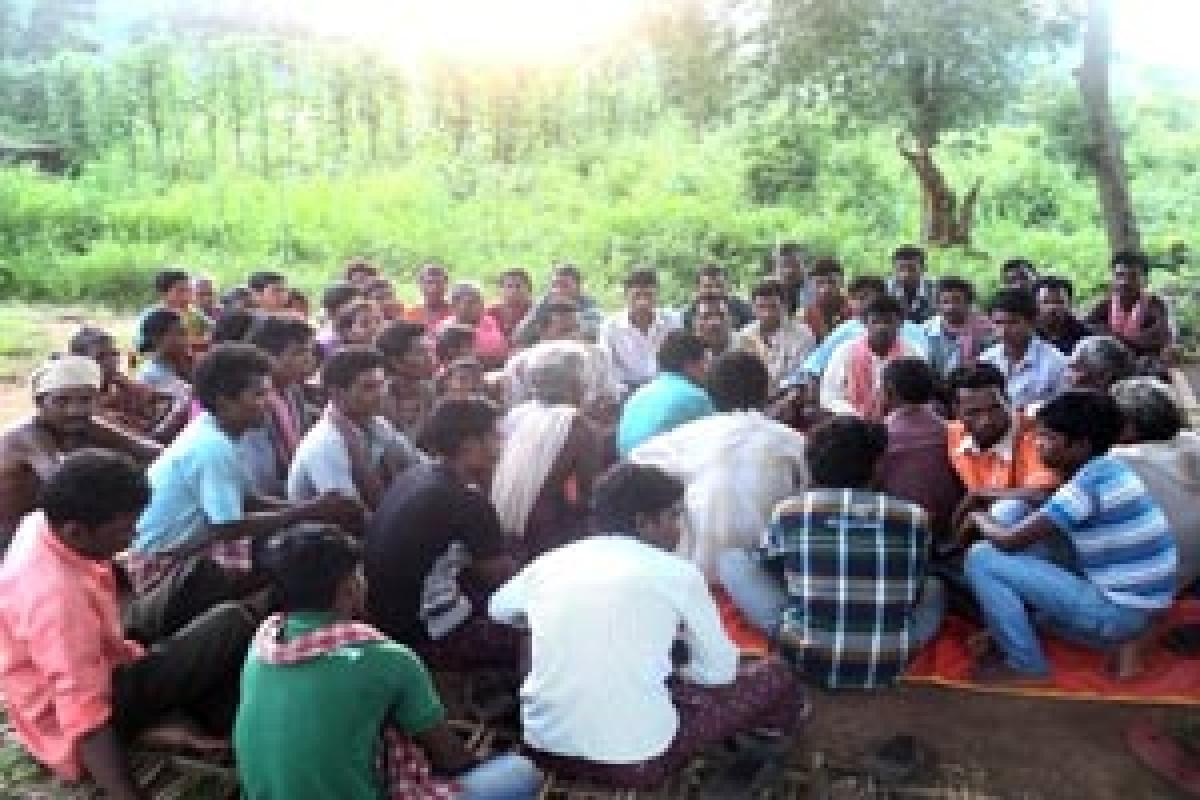Live
- Six scholars, including two women, win Infosys Prize 2024
- Gurukula zonal level sports meet concludes
- Vagdevi Jr College student selected for national basketball tourney
- Maoist area committee member arrested
- Collectorate staff protest attack on DC
- Villagers urge authorities to continue launch service even after construction of bridge
- MLA Padmavathi launches free lunch for readers
- Police high-handedness sparks outrage in Kodangal
- Khichi elected mayor of Delhi
- Sports enthusiasts encouraged to focus on achieving their goals
Just In

As per the Forest Rights Act, 2006 (FRA), the Gram Sabha has been assigned substantial role for implementation of the provisions of the Act.
As per the Forest Rights Act, 2006 (FRA), the Gram Sabha has been assigned substantial role for implementation of the provisions of the Act.
Under the Forest Rights Act, 2006, the Gram Sabha has been assigned the following roles for implementing the provisions of the Act:
(i) To initiate the process for determining the nature and extent of individual or community forest rights or both that may be given to the forest dwelling Scheduled Tribes and other traditional forest dwellers within the local limits of its jurisdiction under the Act by receiving claims, consolidating and verifying them and preparing a map delineating the area of each recommended claim in such manner as may be prescribed for exercise of such rights and then pass a resolution to that effect and thereafter forward a copy of the same to the Sub-Divisional Level Committee;
(ii) To recommend developmental projects managed by the government which involve felling of trees not exceeding seventy-five trees per hectare, and which require diversion of forest land, under Section 3 (2) of the Forest Rights Act, 2006;
(iii) To consider the resettlement or alternative packages prepared by the State Governments for providing a secure livelihood to the affected individual forest rights holders and communities whose forest rights recognized under the Act in the critical wildlife habitats of National Parks and Sanctuaries are subsequently modified or resettled for the purposes of creating inviolate areas for wildlife conservation for providing free informed consent to the proposed resettlement and to the alternative package;
(iv) To protect the wild life, forest , biodiversity, adjoining catchments areas, water sources, other ecological sensitive areas, preserve the habitat of forest dwelling Scheduled Tribes and other traditional forest dwellers from any form of destructive practices affecting their cultural and natural heritage etc. [Section 5]; and
(v) To pass a resolution against any higher authority by giving a notice of not less than sixty days to the State Level Monitoring Committee and the State Level Monitoring Committee does not proceed against such authority for enabling the Court to take cognizance of any offence under Section 7 of the Act [Section 8].

© 2024 Hyderabad Media House Limited/The Hans India. All rights reserved. Powered by hocalwire.com







